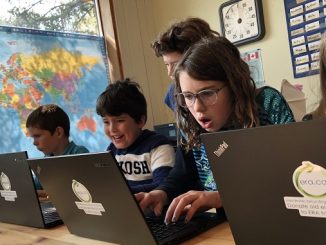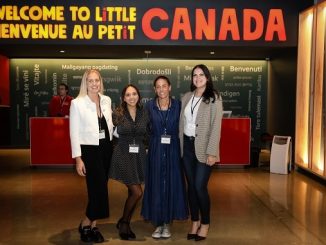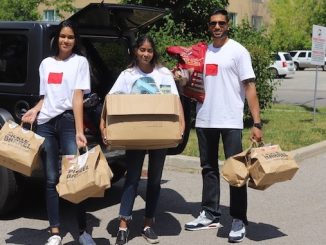Emel Tabaku, the Founder & Executive Director of RCAD Initiative, leads a nonprofit helping young people use art and design to tackle social issues. RCAD started during the pandemic, giving tools to youth for community work. Tabaku’s own immigrant story inspires RCAD’s focus on diverse identities. The organization has grown, partnering with artists and addressing issues like gender equity and climate justice. As RCAD expands to in-person activities, it seeks support for communities and the arts.
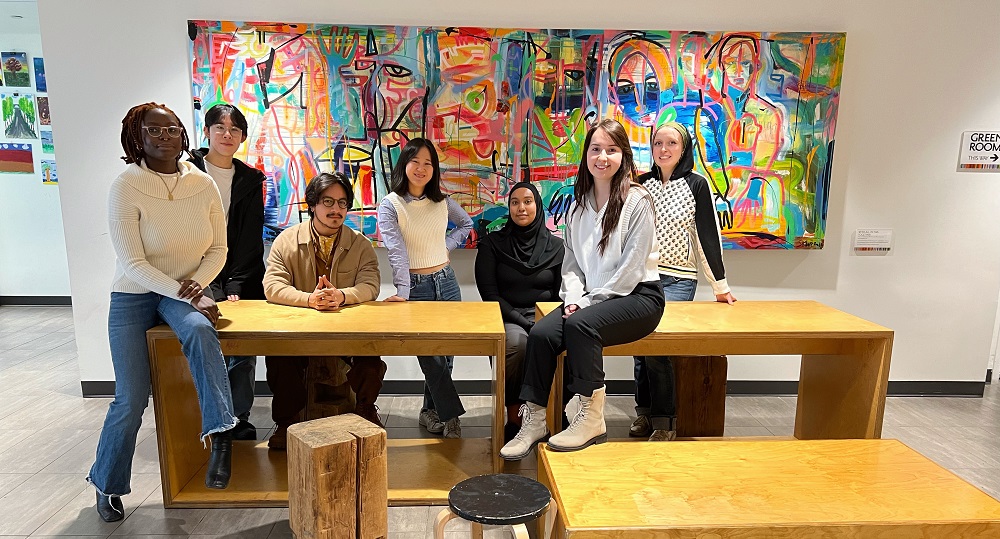
Describe your charity/non-profit/volunteer work in a few sentences.
RCAD Initiative is a non-profit organization that empowers young people from underrepresented communities to address social issues through art and design. We provide youth with the tools, resources, and mentorship they need to advocate for their communities through programs in storytelling, digital mentorship, community building, and entrepreneurship.
What problem does it aim to solve?
RCAD Initiative seeks to inform and empower youth by merging art and design with grassroots education, community organizing, and policy advocacy. Our goal is to improve the socio-economic conditions and well-being of marginalized youth across Canada, recognizing them as future leaders. We offer a platform for youth to raise their voices, collaborate, and take action for positive change.
When did you start/join it?
I founded RCAD Initiative during the COVID-19 pandemic to address the challenges faced by youth at a time when communities were more isolated. I realized the digital space could be used for connection and mutual support. While we started as a digital organization, we have since expanded to in-person community-building efforts. Over the past couple of years, I’ve had the privilege of watching our #byyouthforyouth non-profit grow into a space where young people can engage, learn, and shape their futures.
What made you want to get involved?
As a first-generation immigrant from Albania, I’ve always been passionate about social issues. My own experiences as an immigrant and Muslim woman in Canada sparked my interest in the resilience of marginalized communities. I founded RCAD Initiative to create a space where newcomer and refugee youth could express their stories and identities. Our first program was a digital storytelling mentorship, led by Sania Khan, an expert in human rights and community organizing. It was a powerful way to support youth in sharing their voices and advocating for change.
What was the situation like when you started?
COVID-19 deepened existing inequalities, making it even harder for marginalized communities to access services and opportunities. In the arts sector, many organizations struggled with limited resources and funding cuts, causing closures and downsizing. Despite these challenges, our communities showed incredible resilience. It’s been an honor to create a space where underrepresented youth can come together to dream about and work towards a better future.
How has it changed since?
After two years of online programming, many people experienced digital fatigue. To meet the evolving needs of our youth, we expanded into in-person activities, creating spaces for creative collaboration and networking. We’ve also partnered with over 35 emerging artists and launched programs that connect storytelling with the United Nations Sustainable Development Goals (SDGs). We’ve tackled important issues like gender equity and climate justice, all while fostering a strong sense of community.
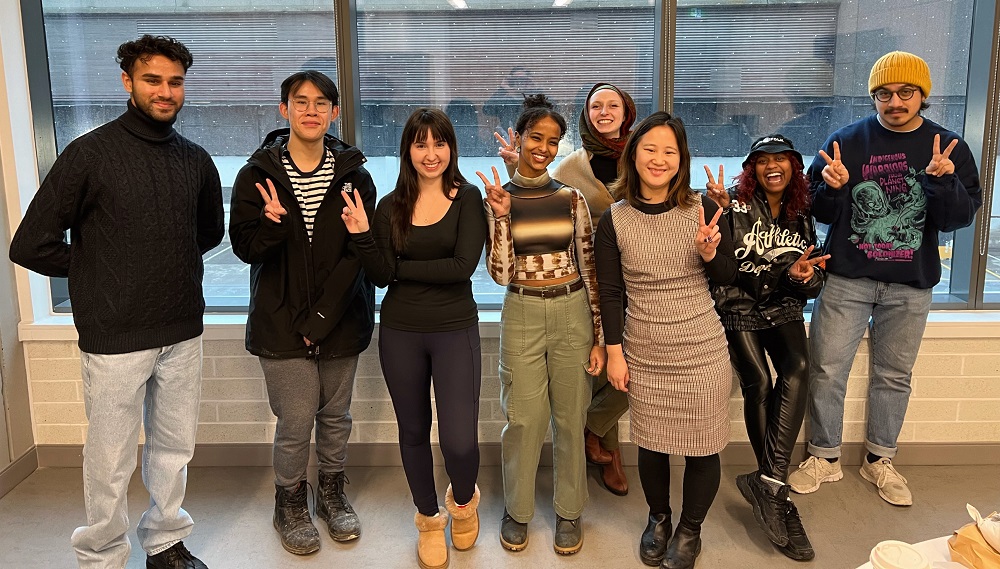
What more needs to be done?
We need to keep pushing for more support and resources. As we expand our in-person programs, we want to ensure they are accessible and inclusive. We’re calling on the non-profit sector to prioritize youth engagement and make sure young voices are heard as we work toward a more equitable and resilient future.
How can our readers help?
Here are five ways you can support us (most are free!):
- Follow, like, and share our posts on social media to spread the word about our work.
- Engage with our content—we love hearing your ideas and feedback.
- Listen to our podcast, RCAD Initiative, available on Apple and Spotify.
- Leave a review for our podcast or programs, and share your thoughts on future content.
- Support our youth programming by donating through our website.
We are deeply grateful for the support of our team, partners, donors, and everyone who believes in the power of art to drive social change and liberation. Stay tuned for more in 2024!
Do you have any events coming up?
We’re excited to announce an upcoming arts exhibition at Charles Street Video (CSV) in mid-March. This event will showcase the work of young artists from our Global Storytelling Incubator (GSI) Hub. Their artwork will explore themes like climate action, gender equality, and poverty reduction, all framed through the lens of the United Nations SDGs. We hope this exhibition sparks dialogue, empathy, and collective action for a more just and sustainable future. Stay connected for updates on our social media!
Where can we follow you?
Website | Instagram | LinkedIn | Facebook
PAY IT FORWARD: What is an awesome local charity that you love?
One local organization I truly admire is the Green Career Centre. They focus on helping underrepresented youth—especially BIPOC individuals, newcomers, and women—build careers in the green sector. Their mission is to create equitable, accessible, and transparent pathways to jobs in social and environmental fields, which is so important for our collective future.
I also have deep respect for Community Foundations of Canada (CFC). As the leadership organization for over 200 local community foundations across the country, CFC works to create local solutions that address national issues. They’re building a movement to connect foundations, people, and partners to create a more just and sustainable future.


